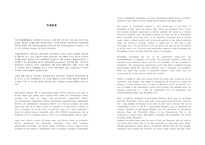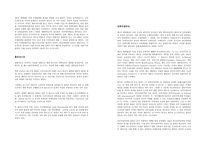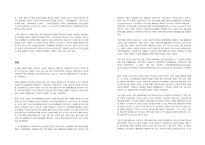국제관계학에서는 기본적으로 현실주의와 자유주의라는 두가지 시각이 존재하며, 현실주의의 태동이라 할 수 있는 모겐소의 전통적 현실주의는 미국 대통령 우드로 윌슨의 이상주의에 대한 반발로 생겨났다. 이는 국제연맹의 무능함으로 인해 2차대전이 발발하게 된것에 기인하였다. 이는 1980년대에 왈츠의 신현실주의(Neorealism)로 이어지게 된다. 기본적으로 현실주의적 시각에서는 국가가 국제사회에서 제일 중요한 행위자이며, 세계는 아나키 상태로 간주된다. 따라서 국제협력을 중요시 여기는 자유주의와는 달리, 안보를 중요시 여기며, 여기에서 안보의 딜레마가 발생하게 된다.
이것에 대한 비판으로 자유주의가 등장하게 된다. 자유주의적 시각에서는 현실주의와는 달리 국가가 더 이상 국제체계에서 가장 중요한 행위자가 아니며 다양한 행위자의 행동을 중요시한다. 또한 각 국가들을 협력의 파트너로 보며 국제제도,규칙,레짐,국제법을 중요시 여긴다.
International relations (IR) or International studies (IS)[1] represents the study of foreign affairs and global issues among states within the international system, including the roles of states, inter-governmental organizations (IGOs), non-governmental organizations (NGOs), international nongovernmental organizations (INGOs), and multinational corporations (MNCs). It is both an academic and public policy field, and can be either positive or normative as it both seeks to analyze as well as formulate the foreign policy of particular states. It is often considered a branch of political science (especially after 1988 UNESCO nomenclature), but an important sector of academia prefer to treat it as an interdisciplinary field of study.
Apart from political science, IR draws upon such diverse fields as economics, history, international law, philosophy, geography, social work, sociology, anthropology, psychology, and cultural studies. It involves a diverse range of issues including but not limited to: globalization, state sovereignty, ecological sustainability, nuclear proliferation, nationalism, economic development, global finance, terrorism, organized crime, human security, foreign interventionism and human rights.
The history of international relations is often traced back to the Peace of Westphalia of 1648, where the modern state system was developed. Prior to this, the European medieval organization of political authority was based on a vaguely hierarchical religious order. Westphalia instituted the legal concept of sovereignty, which essentially meant that rulers, or the legitimate sovereigns, had no internal equals within a defined territory and no external superiors as the ultimate authority within the territorys sovereign borders. A simple way to view this is that sovereignty says, "Im not allowed to tell you what to do and you are not allowed to tell me what to do." Classical Greek and Roman authority at times resembled the Westphalian system, but both lacked the notion of sovereignty.
Westphalia encouraged the rise of the independent nation-state, the institutionalization of diplomacy and armies. This particular European system was exported to the Americas, Africa, and Asia via colonialism and the "standards of civilization". The contemporary international system was finally established through decolonization during the Cold War. However, this is somewhat over-simplified. While the nation-state system is considered "modern", many states have not incorporated the system and are termed "pre-modern".
Further, a handful of states have moved beyond the nation-state system and can be considered "post-modern". The ability of contemporary IR discourse to explain the relations of these different types of states is disputed. "Levels of analysis" is a way of looking at the international system, which includes the individual level, the domestic nation-state as a unit, the international level of transnational and intergovernmental affairs, and the global level.
What is explicitly recognized as International Relations theory was not developed until after World War I, and is dealt with in more detail below. IR theory, however, has a long tradition of drawing on the work of other social sciences. The use of capitalizations of the "I" and "R" in International Relations aims to distinguish the academic discipline of International Relations from the phenomena of international relations. Many cite Thucydides History of the Peloponnesian War as the inspiration for realist theory, with Hobbes Leviathan and Machiavellis The Prince providing further elaboration.
Similarly, liberalism draws upon the work of Kant and Rousseau, with the work of the former often being cited as the first elaboration of democratic peace theory. Though contemporary human rights is considerably different than the type of rights envisioned under natural law, Francisco de Vitoria, Hugo Grotius and John Locke offered the first accounts of universal entitlement to certain rights on the basis of common humanity. In the twentieth century, in addition to contemporary theories of liberal internationalism, Marxism has been a foundation of international relations.
1차 세계대전











 분야
분야


